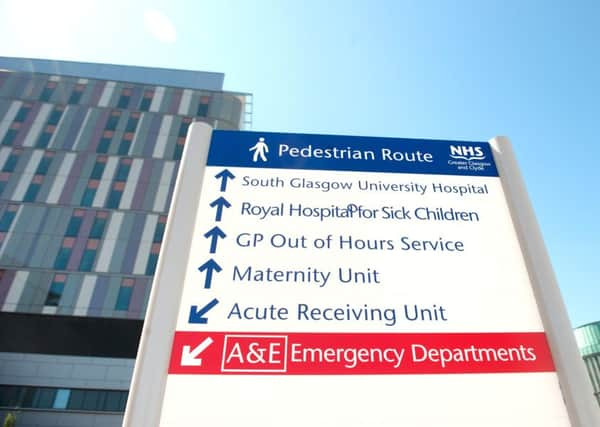Leaders: NHS 24 must be given time to sort out shambles


The decision to withdraw a notoriously faulty new computer system from NHS 24 is the right one, no matter the inconvenience or embarrassment it may cause.
A functioning system already existed, and the so-called “Future Programme”, costing £117 million, was supposed to provide an improved version.
Advertisement
Hide AdAdvertisement
Hide AdHowever, by all accounts, it has been a major step backwards to date.
Laughably, the system had to be suspended within just one hour of being launched last month, with staff forced to resort to pen and paper when taking calls.
It has now been announced that, after only ten days in operation, the system has been shelved because it has been forecast that the delays it is causing would reach unacceptable levels.
The only proper course of action was to fall back on the old system. That has been rightly done in the interests of patient safety and welfare, which must always remain paramount.
Recent events involving Police Scotland’s call-handling procedures have demonstrated the tragic consequences of a system which is not robust enough to deliver its basic function.
That has been further underlined by yesterday’s report from a union representing call centre staff that the delayed response to the fatal M9 crash was not an isolated incident.
So NHS 24 will have to satisfy itself that it is 100 per cent certain about its new system before making a further attempt to put it into service.
That does not detract from the fact that it remains totally unacceptable that this “super” new system is now two years late, over budget by £41m, and still not fit for purpose. It is a botched job on a grand scale.
Advertisement
Hide AdAdvertisement
Hide AdWe must be told why this project has gone so badly wrong. Patients – and taxpayers – are owed an explanation.
Multi-million pound IT systems are, of course, complicated, but NHS Scotland’s latest gizmo will hardly be unique.
NHS 24 says its aim is to reintroduce the system in “early 2016”. But the public is now less concerned about the date. What people are really only interested in is whether the technology works.
The Auditor General for Scotland has warned of the significant extra costs of any further delays to introduction, of some £450,000 a month.
However, the crucial point is that when anxious patients or their relatives call NHS 24, they must be reassured they are getting the most professional and technically sound service possible.
Health secretary Shona Robison clearly feels the same, in rightly endorsing the system’s suspension in the interests of putting patient safety first.
Plainly, Future Programme is nowhere near ready to be used, and, within reason, NHS 24 should take as long as is required to put it right.
Another relaunch which bombs is going to undermine confidence in the entire service – to such an extent that it may not be possible to recover. That would trigger the inevitable calls for the entire project to be ditched and to have a complete rethink.
Advertisement
Hide AdAdvertisement
Hide AdWhat a financial shambles that would be. So NHS 24 should take the time to get it right and ensure public confidence is restored.
Don’t rush this tram journey
For Edinburgh city council to be considering extending its tram scheme when the scars from building the first section are still raw was always going to be difficult for many to stomach.
However, it is important to be clear what step in the process the local authority has reached as councillors prepare to discuss the issue next week. The vote will be about the principle of extending the line, and an initial commitment to costs which is not enormous. This should allow time for more analysis of the case for a new section.
Is the proposal supported by the Labour half of the council’s ruling coalition robust? It could be, but it would take a lot of faith to believe that at this stage. The dilemma, of course, is that the outlay on an extension looks offensive when set against the cuts being made in local authority spending. Labour claims the project could go ahead without impacting on that budget. But the problem is that such a claim sounds unlikely. We know how costs can run out of control, particularly when it comes to tram projects.
That’s especially the case when so much remains unclear, including who will be in charge of seeing this one through.
The economic case has to be more convincing if consensus – Labour winning over its SNP council partners – is to be achieved.
The mistakes made in the original project have to inform the entire process this time around, if indeed there is a this time around.
Another problem is the tram inquiry set up under Lord Hardie to answer such questions has only just held its preliminary hearing.
So there must be no rush. Let’s make doubly sure we get absolutely every step of the process right. That means demonstrating that the numbers add up for starters is vital.